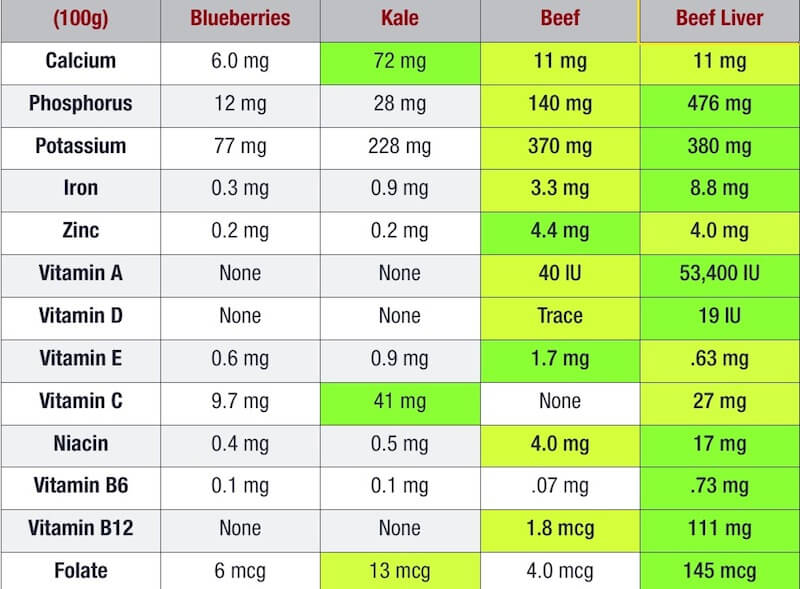More from Chris Kresser:
Got digestive problems? Take it easy on the veggies.
A couple weeks ago I wrote an article called FODMAPS: Could Common Foods Be Harming Your Digestive Health? I described how certain classes of foods, known as FODMAPs, are poorly digested in certain people and can lead to gas, bloating, pain and changes in stool frequency and consistency. Studies have shown that conditions like Irritable Bowel Syndrome (IBS) are associated with FODMAP intolerance, and that a low-FODMAP diet offers relief in a substantial percentage of people with IBS.
Today I’ve got another tip for those of you with digestive issues, including IBS, constipation, diarrhea and acid reflux: eat fewer vegetables.
Yep, that’s right. Fewer vegetables.
Vegetables (as well as some fruits) are often high in insoluble fiber. While soluble fiber can be soothing for the gut, consuming large amounts of insoluble fiber when your gut is inflamed is a little bit like rubbing a wire brush against an open wound. Ouch.
Vegetables that are high in insoluble fiber include:
Greens (spinach, lettuce, kale, mesclun, collards, arugula, watercress, etc.)
Whole peas, snow peas, snap peas, pea pods
Green beans
Kernel corn
Bell peppers
Eggplant
Celery
Onions, shallots, leeks, scallions, garlic
Cabbage, bok choy, Brussels sprouts
Broccoli
Cauliflower
The vegetables that are high in soluble fiber, but lower in insoluble fiber (and thus tend to be safer for those with gut issues) include:
Carrots
Winter squash
Summer squash (especially peeled)
Starchy tubers (yams, sweet potatoes, potatoes)
Turnips
Rutabagas
Parsnips
Beets
Plantains
Taro
Yuca
Another helpful tip is to reduce the variety of vegetables you eat at any given meal. Instead of stir-fries with 6 different veggies, have a single steamed or roasted vegetable as a side dish. This works better for most people with gut issues.
But won’t I become deficient in nutrients if I don’t eat tons of veggies?
First of all, I’m not suggesting that you don’t eat these foods at all if you have digestive problems. I’m simply suggesting that you limit them. There are also steps you can take to make these foods more digestible and less likely to cause problems. They include:
Never eat insoluble fiber foods on an empty stomach. Always eat them with other foods that contain soluble fiber.
Remove the stems and peels (i.e. from broccoli, cauliflower and winter greens) from veggies (and fruits) high in insoluble fiber.
Dice, mash, chop, grate or blend high-insoluble fiber foods to make them easier to break down.
Insoluble fiber foods are best eaten well-cooked: steamed thoroughly, boiled in soup, braised, etc; avoid consuming them in stir-fries and if you do eat them raw, prepare them as described in #3 above.
Second, although fruits & veggies are high in certain nutrients, animal products like meat, organ meat, fish, eggs and dairy are as high and sometimes higher in those nutrients. For example, the chart below compares the micronutrient profile of beef liver and beef with blueberries and kale, two plant-foods often referred to as being particularly nutrient-dense:
It’s also worth pointing out that most traditional cultures only ate a few vegetables and fruits that were available seasonally. They couldn’t walk into Whole Foods and buy every vegetable on the planet at every time of year.
I have nothing against vegetables. In fact, I like them quite a bit and I do think they’re beneficial. But the advice to eat 6-8 servings a day is not based on solid scientific evidence, and may cause unnecessary distress in people with gut problems.
Fermented vegetables: a better alternative?
Fermented vegetables like sauerkraut, kim chi, sauerruben and cortido are excellent alternatives for people with gut issues. First, the fermentation process “pre-digests” the vegetables and makes them easier to absorb. Second, fermented veggies contain probiotic microorganisms that help heal the gut.
Although sauerkraut and kim chi contain cabbage, which is high in insoluble fiber (and a FODMAP to boot), I’ve found that many patients with gut problems can tolerate it quite well. FODMAPs are sugars and sugar alcohols, and fermentation breaks down sugars. This is probably why fermented FODMAPs are better tolerated than non-fermented FODMAPs.
If you’re new to fermented vegetables, you have two options:
Make them yourself. Check out this page for a great primer. It’s really quite easy, and cheap.
You can buy them at a health food store. Make sure that it says “raw” on the jar, and they’re in the refrigerated section. The sauerkraut you can buy in the condiments section has been pasteurized and won’t have the same beneficial effect.
Now I’d like to hear from you: have you tried reducing your intake of vegetables high in insoluble fiber? Did that help your digestion? Let us know in the comments.
P.S. Next week I’ll be presenting at the Ancestral Health Symposium in Boston, and thus may not be able to post an article to the blog. I look forward to meeting those of you that will be there.

 )
)

 :)
:)